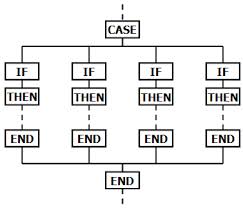 For those of you following the last few blog posts, you know that I’m reading “The Marshmallow Test: Mastering Self-Control“ written by researcher Walter Mischel, which is a book about human behavior, delayed reward and resisting temptation. There are tons of organizational development lessons throughout the book, and there is so much that non-profit organizations can learn from this research.
For those of you following the last few blog posts, you know that I’m reading “The Marshmallow Test: Mastering Self-Control“ written by researcher Walter Mischel, which is a book about human behavior, delayed reward and resisting temptation. There are tons of organizational development lessons throughout the book, and there is so much that non-profit organizations can learn from this research.
For example, chapter five — “The Best-Laid Plans” — looks at a concept researchers labeled “hot stimulus” (aka temptation), which is one important factor in the entire delayed reward equation at the root of the marshmallow test. In this chapter, they looked at strategies that children were asked to use in order to improve the amount of time they spent on a project before caving in to a distraction or reward.
One of the strategies that seems to work well is creating “If-Then Plans.” The way this works is when a child is presented with a situation like a foreseeable distraction or temptation, they automatically do something that helps insert their self-control. Here is how Mischel talks about this phenomenon on page 98:
“With practice, the desired action of an implementation plan becomes initiated automatically when the relevant situation cues occur:
- When the clock hits 5 pm, I will read my textbook;
- I will start writing the paper the day after Christmas;
- When the dessert menu is served, I will not order chocolate cake;
- Whenever the distraction arises, I will ignore it.
And implementation plans work not just when the IF is in the external environment (when the alarm rings, when I enter the bar) but also when the cue is your internal state (when I’m craving something, when I’m bored, when I’m angry).
When I read this chapter, it got me thinking about how powerful IF-THEN planning can be and has been for countless numbers of smart non-profit organizations. The following are just a few examples:
- IF our executive director resigns or leaves some day, then we will a) hire an interim executive director, b) form an executive search committee, etc.
- IF our largest funding source cuts or stops funding our agency, then we will cut XYZ from the operating budget and immediately access X% of funding from our reserve funds and raise Y% of funding from a special appeal to select major gifts donors.
- IF our capital campaign feasibility study comes back with news that we can raise less than expected, then we will scale the building project back in the following ways: X, Y, and Z.
Developing IF-THEN plans for your agency on a variety of different issues can help your organization get through tough situations like executive turnover. More importantly, it will help you avoid distracting shiny-object-types-of-issues that are endemic to most crisis situations.
Has your agency developed a succession plan or anything else that qualifies as an “IF-THEN” plan or strategy? Please scroll down and share your thoughts and experiences in the comment box below. I would love to hear about your successes and your lessons learned.
Here’s to your health!
Erik Anderson
Founder & President, The Healthy Non-Profit LLC
www.thehealthynonprofit.com
erik@thehealthynonprofit.com
http://twitter.com/#!/eanderson847
http://www.facebook.com/eanderson847
http://www.linkedin.com/in/erikanderson847
